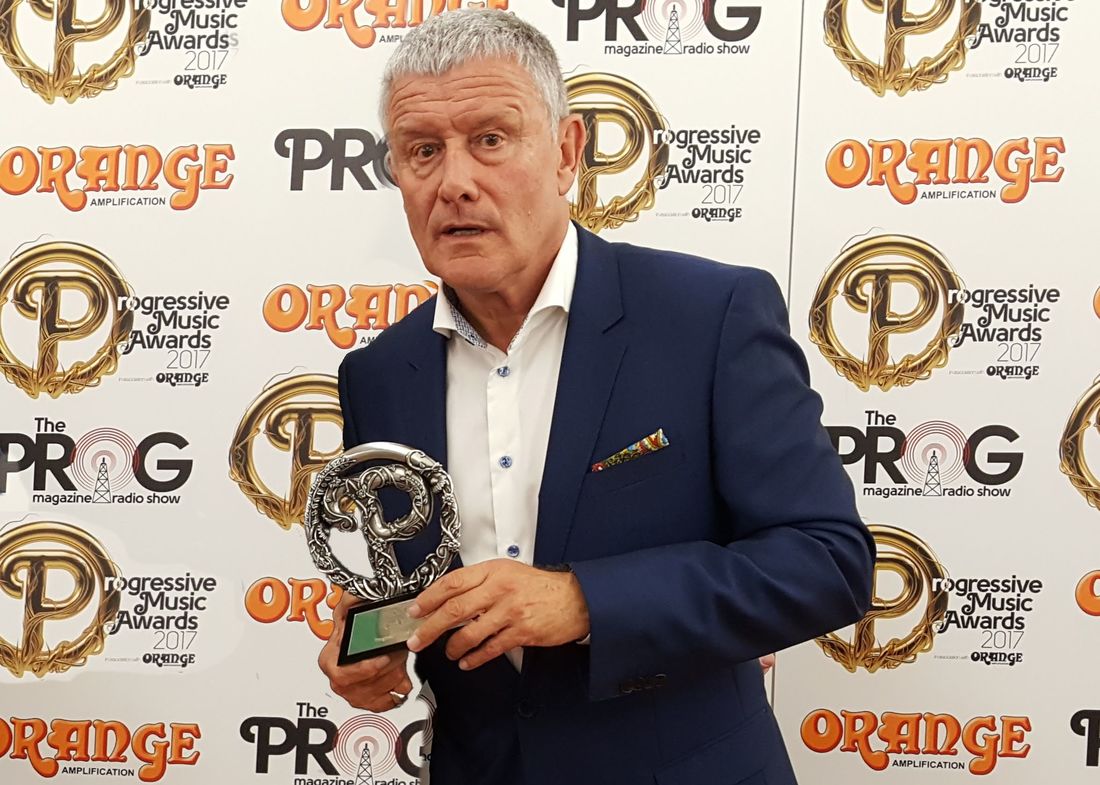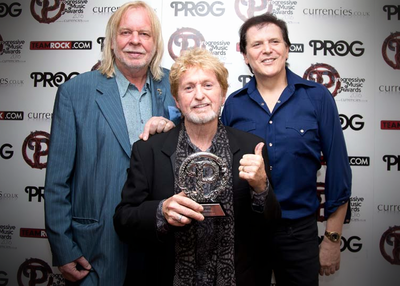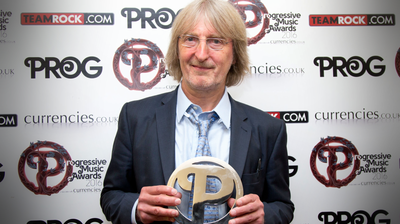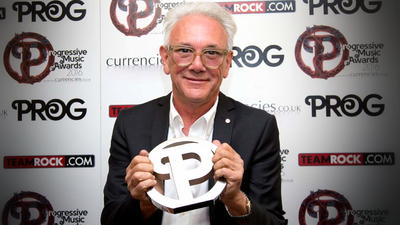|
The Prog God at this years' Progressive Music awards, drummer, percussionist and song writer Carl Palmer has had a decorated career. As well as stints with Atomic Rooster and Mike Oldfield, he’s also been a member of prog super group Asia. However he’s best known as being one third of Emerson Lake and Palmer, along with Greg Lake and Keith Emerson. With both of his former ELP band mates passing away in 2016, Carl is the last man standing; something that he's painfully all too aware of. We spoke to Carl at the awards in London to discuss his legacy, the end of ELP, and his driven work ethic. The common man; Eamon O’Neill.
Mr. Carl Palmer; how are you this evening?
I’m very well, thank you. You’re holding the Prog God award. That’s right, that’s me; I’m a prog god tonight! What does the award mean to you, as the last man standing from ELP? Yeah, I’m the last man standing. I didn’t really think about the award too much at all; it’s not something that I’ve been hankering after, you know, but now that I’ve got it, obviously, I’m taking this as something that belongs to all three of us; Greg, Keith, and myself. It’s a lovely thing to get after such a traumatic period, which was an eleven month period losing both of them, and [Asia co-founder] John Wetton. So, I’m very pleased to get this, yes. It’s a nice feeling. The loss of those guys much have been traumatic for you, on a personal level. Yeah, it was pretty bad... pretty bad, because the group ended in 2010, and I decided that I wanted to end it then, and we had our ups and downs, but it was the right thing to do; Keith was very happy about it, Greg wasn’t so happy. But we had sixteen great years together [as an active unit], and we laid the blueprint for here, for prog rock music in this country; we were part of it, for sure, if not a fundamental part. So, I believe we did our job. ELP did get back together for a one-off date in London at the High Voltage festival in 2010; how was that? That was it for me. It was great, and I really wanted just to say thank you to all the English people that had given us our chance. I’d liked to have toured it around the world and thanked everyone, but it just wasn’t in that condition to do that, unfortunately. So that’s why that worked out that way. Was it nice for you to do that, even as a one off? It was lovely to see it, and it was lovely to play with those two guys once more, but I wanted to leave the dream intact of how great we were, because, we were great. We were superlative in many, many areas, so, for me, it was a case of saying “thank you”; get in, get out, and we’re done. Was it hard to walk away from that, after that gig? Doing that was was lovely, and I’d have loved to continue. When you’ve got something that’s that important to you, when you’ve created that much great music that’s influenced the world; to have to come to a decision to stop it, you know, it’s difficult. It was extremely difficult, because it’s like cutting a leg or an arm off, you know? “I’ve got to stop this”, I thought, but it was the right thing. So calling an end to ELP was your decision?
Yes, it was, because the band wasn’t playing very well, and there was health issues within the group. Some of the songs were having to be sung in a lower key and things; there were melody changes, I know Keith was struggling trying to play, and instead of going on and on and on, someone needed to say; “Hey guys [we should end this]”, and I was always the one who said; “Hey guys, we’ve got to look at this”, and I was always the one that was confrontational really, because I loved them so much and what we did, and I wasn’t going to just let them sort of drive themselves into the ground. So for me, it was a deed I had to put forward. Looking forward, and you’re continuing on with Carl Palmer’s ELP Legacy. Yeah. What I’m trying to do now is; ELP’s music is so versatile, so versatile, that I’m playing to maybe three generations now, so instead of trying to copy ELP, I’ve done all of the music with guitars and Chapman Sticks and things, because today the guitar players are so fantastic, whereas when ELP started, there were more great keyboard players. So that’s the way I’m doing it. So you’re very much looking forward, as well as looking back? We’ve managed to get this music to cross over to the next generation; that’s what it’s all about, because it’s rich, this music, and you know, I’ll see a third generation there, getting it as well, because this is kind of metal prog now what I’ve turned it into, and for me, that’s the job I’m left to do now. So it means a lot to you to stand with the Prog God award tonight, and continue on the legacy? Yeah, I mean, listen, without this award, I’ll be playing until I drop, you know? I mean, as long as I keep improving - which I still am – I’ll play. If I can’t improve, but I can maintain my standard; I’ll play. If I can’t maintain my standard that I want, then you’ll never be able to do another interview with me again, and that’s the same rules that I imposed on the band. Nothing ever changes; I don’t do one thing for myself and something different for them; that was the rule, that was my life thought with ELP. Like this interview? Like us on Facebook and follow us on Twitter for regular updates & more of the same. Listen to this interview below, on the Neil Jones Rock Show on eonmusicRadio. |
|
Carl Palmer
"ELP had sixteen great years together as an active unit, and we laid the blueprint for prog rock music in this country; we were a fundamental part of it."
© 2016 - 2024 eonmusic.co.ukContact: [email protected]
|




